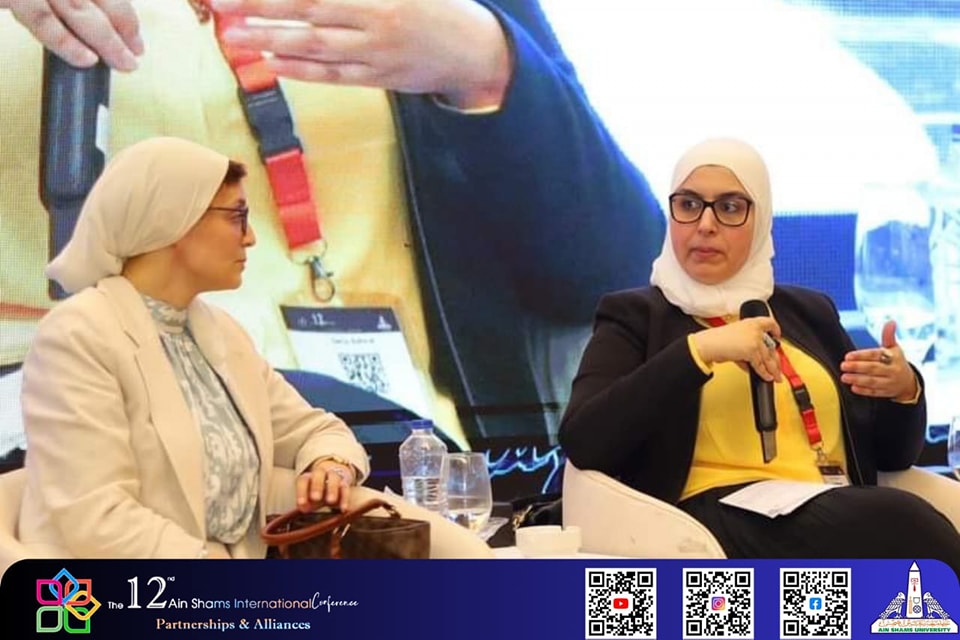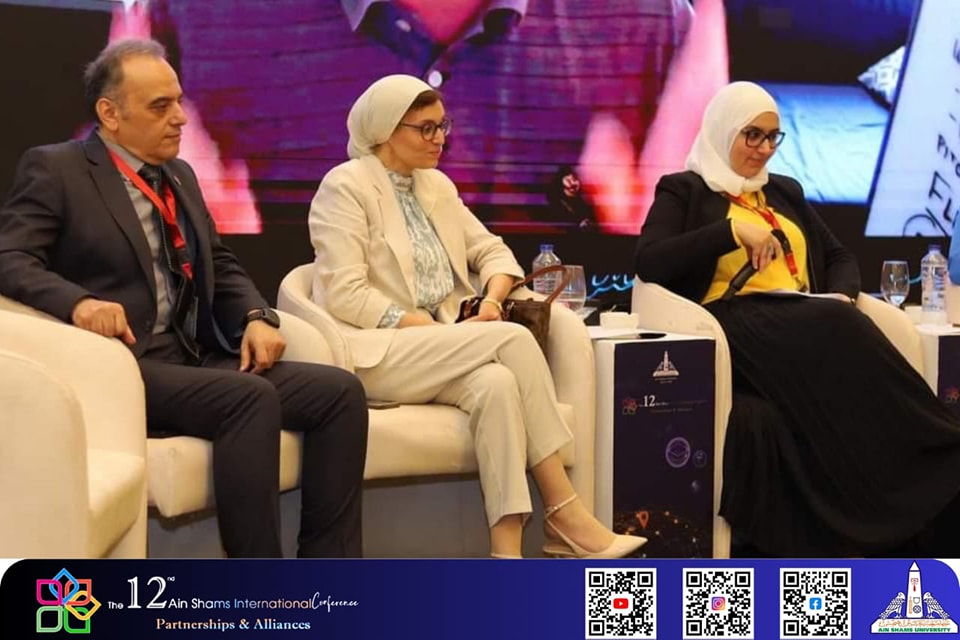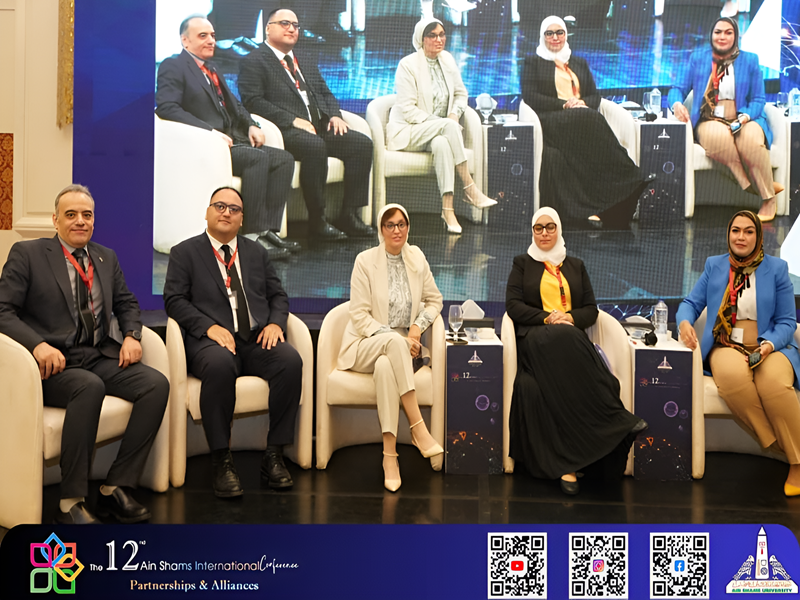The activities of the second session of the innovation and training sector within the 12th Ain Shams University Scientific Conference
Under the title “Partnerships between industry and academia in training, innovation, and entrepreneurship,” the second session of the innovation and training sector at Ain Shams University was held within the activities of the 12th Ain Shams University Scientific Conference, “Partnerships and Alliances” which was held under the patronage of Prof. Mohamed Diaa Zain El-Abedeen, President of the University and Prof. Ghada Farouk, Vice President of the University for Community Service and Environmental Development Affairs and Acting Vice President of the University for Postgraduate Studies and Research.
 |
 |
The session was chaired by Prof. Neven Assem, CEO of the Innovation and Training Sector, and Dr. Weam Mahmoud, Executive Director of the Innovation and Entrepreneurship Center and Ass. Prof. Dina Safwat, Assistant Professor at the College of Dentistry, in the presence of Dr. Islam Adly, Director of Student Activities, ASU-iClub, the Innovation and Entrepreneurship Center team, and the Training and Development Center team, along with a distinguished group of speakers from the National Bank, namely Ms. Chantelle Al-Sabbagh, Business Development Manager, Mr. Ahmed Al-Ghazali, Financial Inclusion Manager, and Mr. Ahmed Ali, Director. Learning and development. The session was also attended by Prof. Ahmed Metwally, Regional Director for North Africa and the Middle East, and Dr. Haluk Karataş, Regional Director of the Research and Development Center at Beko, participated online, Dr. Paul Wolf, Technical University of Berlin and Dr. Brent Sebold of the University of Arizona.
The session came up with a number of recommendations, the most important of which are:
Create joint research and development projects where students and faculty can work on real-world problems alongside industry professionals.
Promoting innovation and entrepreneurial thinking among students through hackathons, incubators, and startup support programs. Promoting faculty development by providing opportunities for faculty members to gain industrial experience through consulting projects and professional development programs.
The importance of benefiting from strong partnerships between universities and industry to drive innovation and entrepreneurship by concluding formal cooperation agreements, universities can access resources that help lead to semi-industrial models.
The importance of developing effective strategies to commercialize intellectual property and innovations produced by the university, which includes establishing technology transfer offices, simplifying patenting and licensing processes, and enhancing cooperation with industry partners to bring technologies developed by universities to the market.
Taking advantage of the various support systems and available growth opportunities provided by the banking sector in the country and the investments made by companies to invest in emerging companies and support research projects and their development.


.svg)

